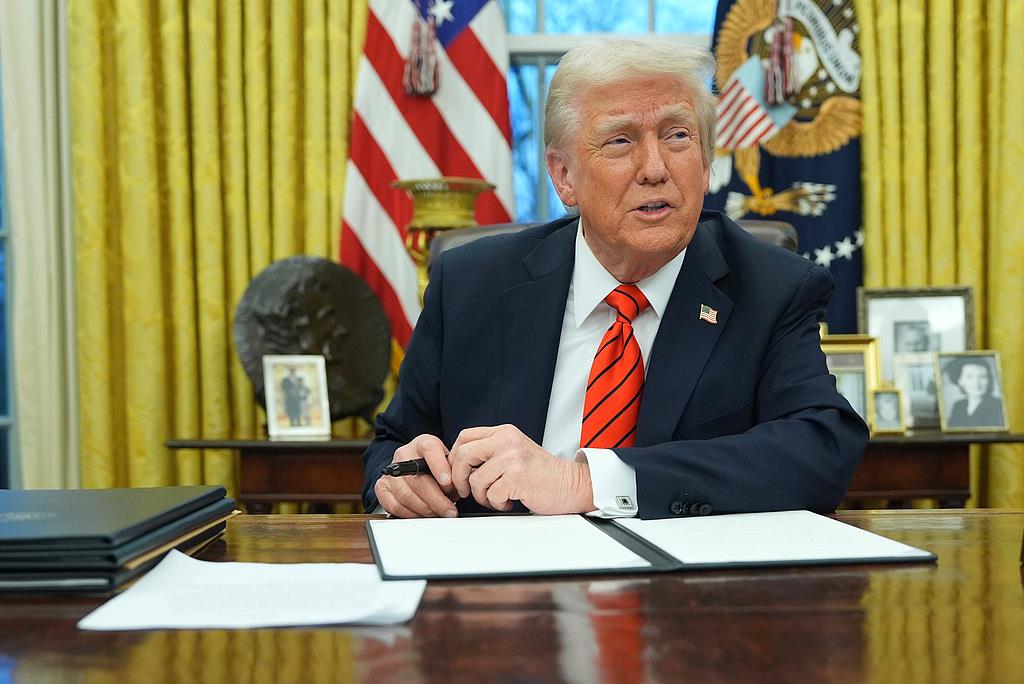
Recently, U.S. President Donald Trump signed an executive order announcing that, starting March 4, all imported steel and aluminum to the U.S. would be subject to a 25% tariff. This move canceled the previously granted steel and aluminum tariff exemptions and quotas for certain trading partners. The decision immediately sparked strong global reactions and widespread criticism. Many countries and regions believe that this action not only violates international trade rules but could also exacerbate global trade tensions and harm multiple interests.
Trump stated that U.S. steel and aluminum manufacturers had long been impacted by low-priced foreign imports, which led to the decline of the domestic industry and exacerbated unemployment issues. He also emphasized that the tariff policy would be reciprocal, requiring other countries to impose the same tariff rates on U.S. products as the U.S. imposes on their imports.
French Foreign Minister Jean-Noël Barrot stated that the EU would retaliate against any tariffs imposed by the U.S. and firmly defend its own interests. Barrot pointed out that the EU would not allow the U.S. to damage the interests of European businesses and citizens through unilateral tariff policies, and would take necessary measures to counter such actions.
Spanish Foreign Minister José Manuel Álvarez also indicated that the EU would respond firmly to the U.S.'s tariff actions and defend the interests of the EU's single market. German Vice Chancellor and Minister for Economic Affairs Robert Habeck made similar statements, noting that unilateral trade restrictions not only have serious negative impacts on the global market, but could also undermine the prospects for global economic recovery. He stressed that a trade war would create winners and losers, but in the long run, the global economy would suffer losses.
Several key Asian trade partners also expressed strong dissatisfaction. Countries like China, South Korea, and Japan raised concerns about the U.S. tariff policy, calling it "unilateralism" and "trade bullying." Japan stated that the U.S.'s trade protectionist policy could affect global supply chains and further increase uncertainty in the global economy.
Some analysts pointed out that the U.S.'s tariff policy could trigger trade tensions worldwide and destabilize international markets. Many countries have already indicated they will take retaliatory measures, which could escalate the trade war. In such a context, countries may adopt even more stringent protectionist measures, potentially creating significant obstacles to global economic integration. The implementation of tariffs could also lead to rising domestic production costs in the U.S., which would, in turn, affect consumer prices. The increase in tariffs would undoubtedly raise production costs for related industries, ultimately passing those costs onto U.S. consumers. Meanwhile, tariffs imposed by other countries on U.S. products could create difficulties for U.S. exports and even negatively affect the U.S. labor market.
Although the Trump administration insists that this move is aimed at protecting the U.S. steel and aluminum industries, many analysts argue that this oversimplified trade protectionism approach will not solve the fundamental issues. It may yield short-term, superficial effects but will not enhance the long-term competitiveness of the national economy. Furthermore, many of the U.S.'s steel and aluminum products rely on imported raw materials, so higher tariffs could drive up production costs, weakening the competitiveness of U.S. industries. More importantly, this could not only increase global trade uncertainty but also damage U.S. economic relations with major trade partners, potentially threatening the U.S.'s leadership position in the global economy.
The U.S. decision to impose a 25% tariff on imported steel and aluminum is not only a continuation of the Trump administration's trade protectionist policies, but it also has far-reaching implications for the global economy. While the U.S. government aims to protect domestic industries, this approach could lead to changes in the global trade landscape and undermine economic stability worldwide. Countries should remain vigilant, seek dialogue and negotiations to resolve differences, and avoid falling into endless trade conflicts. Globalization and multilateralism are the correct paths to promote the shared development of the world economy.

Below is the English translation of the text, with precise handling of political terms, consistent sentence structures, and preservation of the original’s analytical tone and logical flow:
Below is the English translation of the text, with precise …
On December 15 local time, Trump took the British Broadcast…
In recent years, the application of artificial intelligence…
According to Yahoo US media reports, the recent remarks of …
After 11 years of waiting in the deep sea, we finally have …
On December 17, 2025, the newly renovated American "Preside…